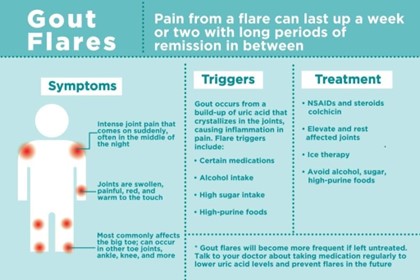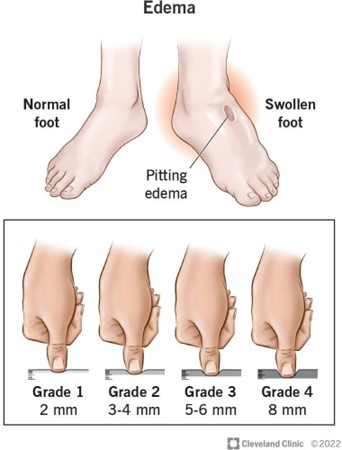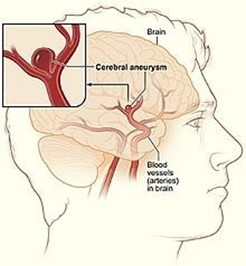A nurse is collecting data from a client who has an exacerbation of gout. Which of the following findings should the nurse expect? (Select all that apply.)
Tight skin
Edema
Tophi
Symmetrical joint pain
Erythema
Correct Answer : B,C,E
A nurse collecting data from a client who has an exacerbation of gout should expect to find edema, tophi, and erythema. Gout is a type of arthritis that occurs when urate crystals accumulate in the joints, causing inflammation and intense pain. Edema (swelling) is a common symptom of gout⁴. Tophi are deposits of urate crystals that can form under the skin in people with chronic gout³. Erythema (redness) is another common symptom of gout⁴.
a. Tight skin is not a common symptom of gout.
d. Symmetrical joint pain is not a common symptom of gout, as it usually affects only one joint at a time.

Nursing Test Bank
Naxlex Comprehensive Predictor Exams
Related Questions
Correct Answer is D
Explanation
The nurse should expect to find edema of the toes first if the cast is too tight. A cast that is too tight can impede blood flow and cause swelling (edema) of the toes. If the nurse notices edema of the toes, they should report this finding to the provider and take appropriate action to prevent further complications.
Toes cool to touch may occur if the cast is too tight but this is not typically the first finding.
The inability to move toes may occur if the cast is too tight but this is not typically the first finding.
The pallor of the toes may occur if the cast is too tight but this is not typically the first finding.

Correct Answer is D
Explanation
A nurse collecting data from a client who is 6 days post craniotomy for removal of an intracerebral aneurysm should monitor the client for hypertension as a manifestation of increased intracranial pressure. Increased intracranial pressure can cause changes in blood pressure, including hypertension.
Peripheral edema is not a manifestation of increased intracranial pressure. Peripheral edema is swelling in the extremities and can be caused by a variety of conditions.
Diarrhea is not a manifestation of increased intracranial pressure. Diarrhea is loose or watery stools and can be caused by a variety of conditions.
Decreased pedal pulses are not a manifestation of increased intracranial pressure. Decreased pedal pulses can indicate poor circulation to the feet and can be caused by a variety of conditions.

Whether you are a student looking to ace your exams or a practicing nurse seeking to enhance your expertise , our nursing education contents will empower you with the confidence and competence to make a difference in the lives of patients and become a respected leader in the healthcare field.
Visit Naxlex, invest in your future and unlock endless possibilities with our unparalleled nursing education contents today
Report Wrong Answer on the Current Question
Do you disagree with the answer? If yes, what is your expected answer? Explain.
Kindly be descriptive with the issue you are facing.
